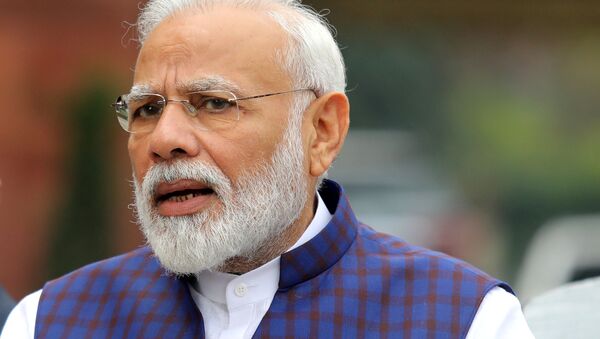Indian Prime Minister Narendra Modi has said that India's New Education Policy (NEP) has been framed with the aspirations of the youth of 21st century in mind.
"We are focussing on the quality of education in India. Our attempts have been to make our education system the most advanced and modern for students of our country," the Prime Minister said.
Modi was speaking at the Smart India Hackathon, which involved 10,000 youngsters taking part in online problem solving. Around 800,000 young people initially applied to take part.
The competition is a nationwide initiative for young minds to innovate and find solutions to the most pressing issues in India, including the coronavirus pandemic.
The Prime Minister interacted with the finalists of the competition, heard about their innovations, and cross-questioned them. The finale of the Hackathon will be held from 1-3 August.
While interacting with the students and the finalists, Modi urged them to never stop learning, questioning and solving, saying that this attitude would help them come up with out-of-the-box solutions to problems.
India's New Education Policy envisages hardcore reforms that will adopt a holistic and multi-disciplinary approach to learning.
Thanks to NEP 2020, the Indian Higher Education sector will have a holistic and multi-disciplinary approach. UG education will offer flexible curricula, creative combinations of subjects, integration of vocational education.
— Narendra Modi (@narendramodi) July 29, 2020
The policy includes provisions such as allowing the entry of top foreign universities into India, changing the course duration of undergraduate programme from three to four years and deploying an interdisciplinary approach by dropping the rigid segregation between Arts, Commerce and Science streams in schools. As a result of the reforms, students will be able to choose to study both arts and sciences at the same time.


